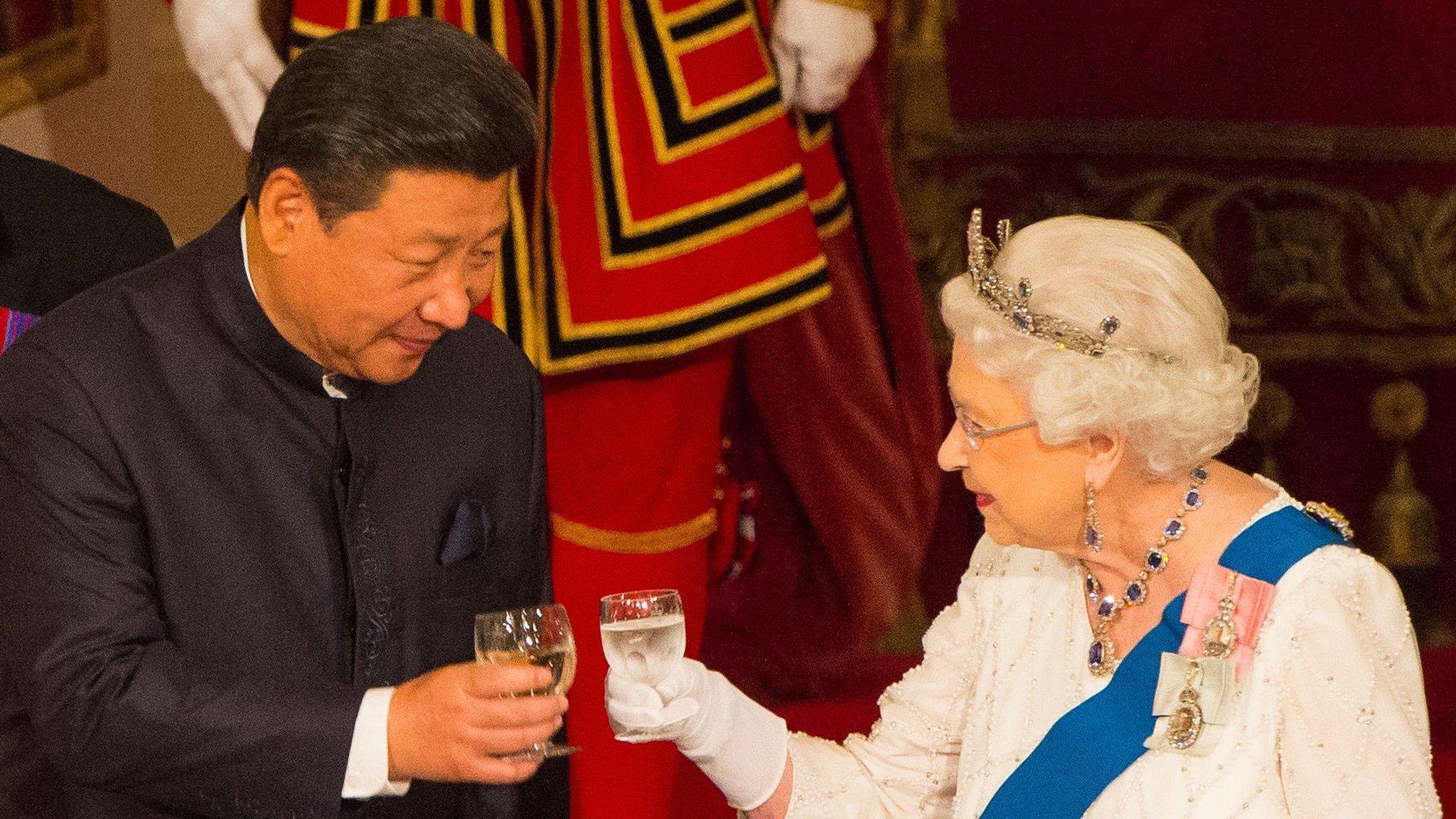Hammond rejects security fears over China investment
- Published
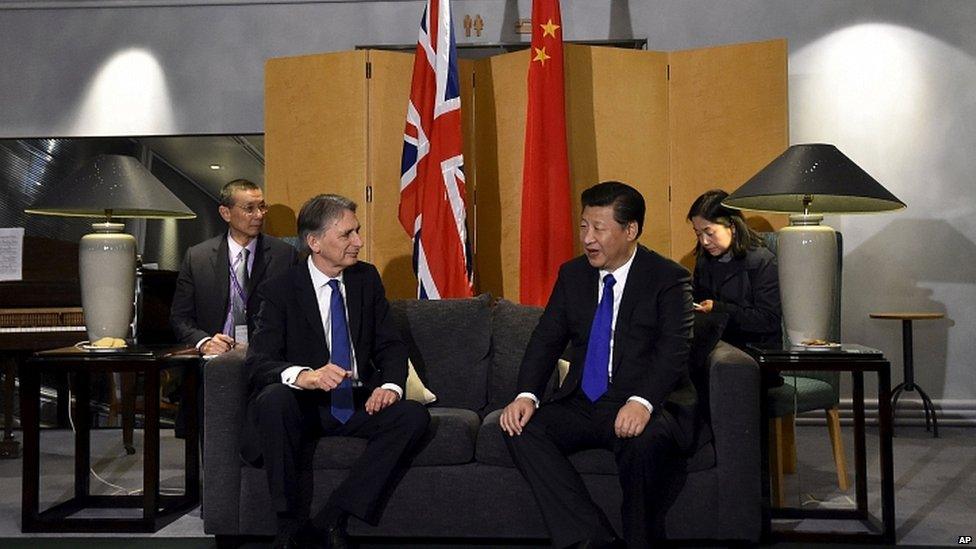
Chinese President Xi Jinping is on a four-day visit to the UK
Philip Hammond has defended the UK's burgeoning commercial links with China, saying they are investing in the UK for financial not political reasons.
The foreign secretary told the BBC it was a "mature" relationship that was a "win-win" for both countries.
He rejected fears it put national security at risk, saying "national security depends on economic security".
He was speaking on the first full day of Chinese President Xi Jinping's state visit to the UK.
Read more: Royal welcome for Chinese president and rolling updates on Politics Live
Addressing MPs, peers and other dignitaries in Parliament, President Xi said China and the UK were becoming "increasingly interdependent" with "common shared interests" across business, education, culture and other areas.
President Xi, who will later be guest of honour at a state banquet at Buckingham Palace, said he was "deeply impressed by the vitality of China-UK relations" and expressed hope their mutual co-operation could be taken to a "new level".
In a short speech in which there was little or no mention of specific political, economic or security issues, the president spoke of the "deep-seated mutual affection" between the countries and his desire to build on their "comprehensive strategic partnership".
Ministers have said "nothing is off the table" in their discussions with Chinese counterparts during the first state visit by a Chinese leader for a decade.
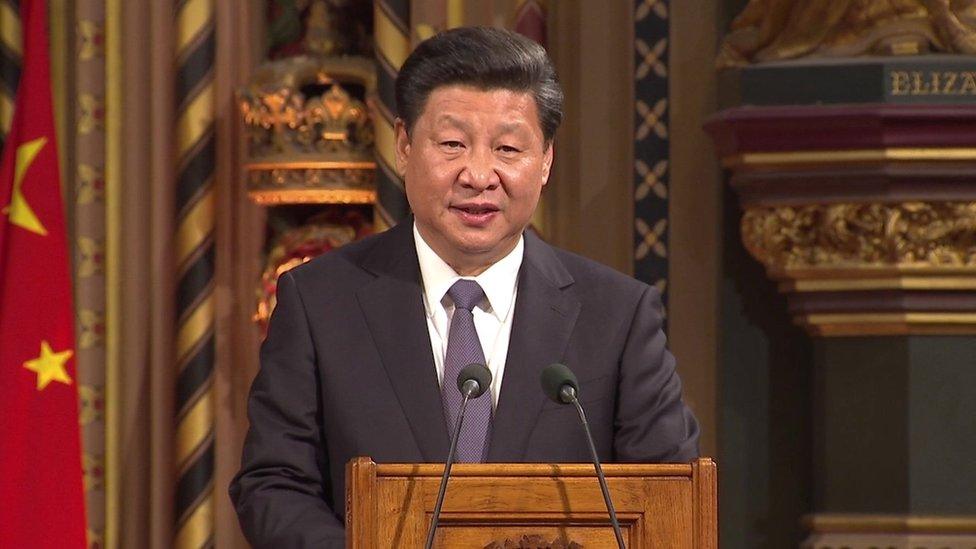
In his address to Parliament, the Chinese president remarked that "no country remains strong or week for ever"
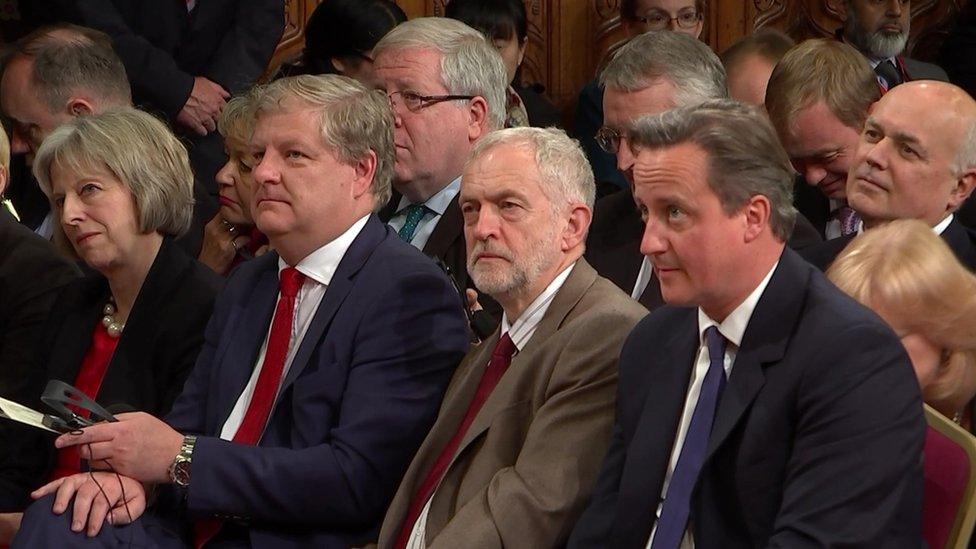
Political opponents gathered to hear President Xi speak. Jeremy Corbyn will hold talks with the Chinese president during the visit as will David Cameron
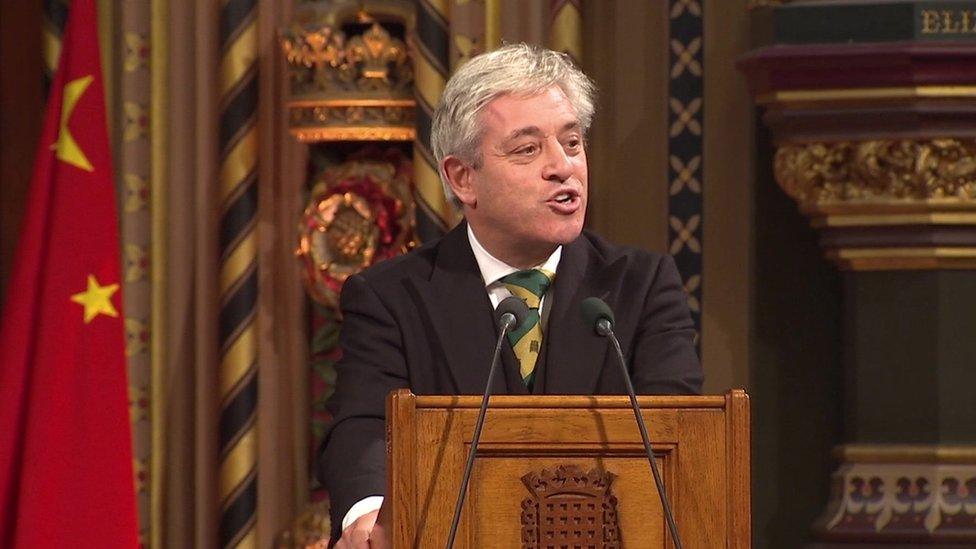
Introducing President Xi, Commons Speaker John Bercow said China and other powerful nations must be seen as a "moral inspiration" to others
But with £30bn worth of commercial contracts and projects, external set to be agreed this week, there is concern that politically contentious subjects, such as the impact of Chinese trade policies on the global steel sector, its human rights record and the implications for the UK's national security of Chinese investment in key infrastructure will be downplayed or ignored totally.
Steve Hilton, a former adviser to David Cameron, said China was a "barbarous tyranny" at home and a "big bully abroad" and it was "dangerous" for Britain to treat its human rights record and other subjects as taboo.
"Instead of standing up to a dangerous rogue state, we are bowing down before it," he wrote in the Daily Mail. , external
And the chairman of consultancy group APCO Worldwide's Chinese operations, James McGregor, warned on BBC Radio 4's Today that "if you (the UK) act like a panting puppy the object of your attention is going to think they have got you on a leash".
But Mr Hammond rejected suggestions that in its eagerness to secure Chinese investment, the UK was compromising its own national interests. In contrast, he said the UK was one of the few "stable" economies that was open to and keen to attract large-scale foreign investment.

Analysis by the BBC's Mark Mardell
George Osborne's recent trip to China gives us a glimpse, perhaps not of "Osbornism" but of how he sees the world.
It suggests a clear-headed but not very exalted vision of Britain's place in the global reordering and a strategic sense of how to deal with this, tactically bold to the point of recklessness.
Above all, it confirms that, for Mr Osborne, economics trumps everything else, be that old alliances or any notion of a universalist, ethical foreign policy. Read Mark's full blog

"In any commercial relationship, there has to be a win-win, it has to work for both sides," he told Radio 4's Today, insisting that China - the world's second largest economy - took the same hard-headed approach to investment decisions as anyone else.
"It would be very dangerous for us to approach the Chinese on the basis that we would like them to invest in projects out of some political motivation. We want them to invest in projects because they are good business.
"I think we are developing a mature relationship with China. They know we are looking not just to China but too many other countries for infrastructure investment in the UK. Chinese funds are very keen to have a piece of the action."
Mr Hammond: "We will certainly take the opportunity to raise issues which will be uncomfortable"
Chinese firms are to part fund the building of a new nuclear reactor at Hinkley Point in Somerset, the first in the UK for a generation, and could be invited to design and build a second reactor in Essex. Military figures have expressed reservations about Chinese input and the potential risks to the UK security, citing Beijing's engagement in cyber espionage.
While "appropriate safeguards" would always be in place in any commercial transaction, Mr Hammond told BBC Breakfast that the UK's national security could not be separated from its economic security.
"Nothing would undermine our national security more quickly than 'brownouts' because we do not have enough generation capacity because the Labour government failed for 13 years to take the decision needed to renew our nuclear capacity."
Labour leader Jeremy Corbyn has said he will use a private meeting with Chinese officials to discuss human rights issues amid concerns that the country is taking a backward step under President Xi, who became the country's supreme leader in 2013.
- Published20 October 2015
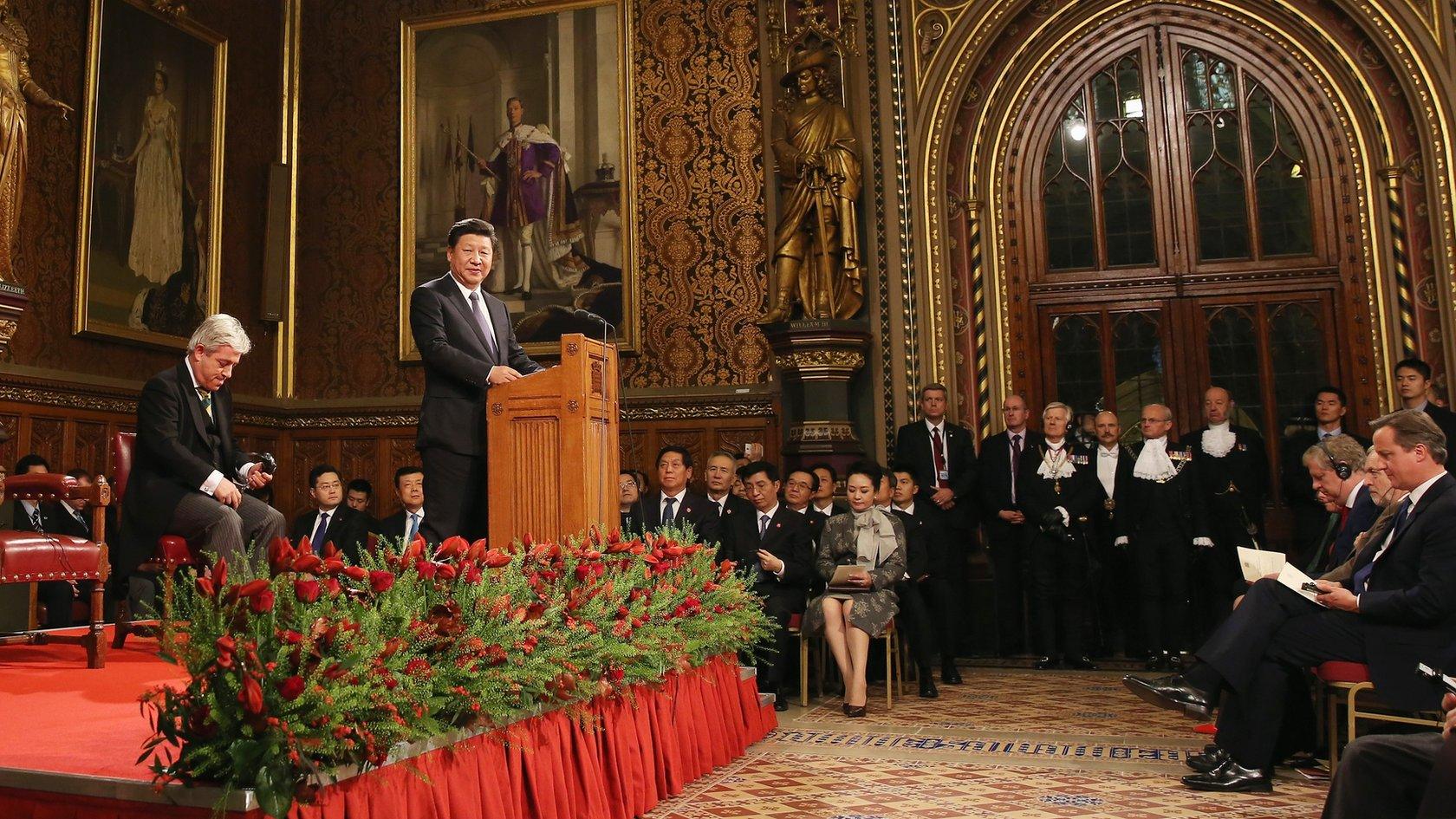
- Published20 October 2015
